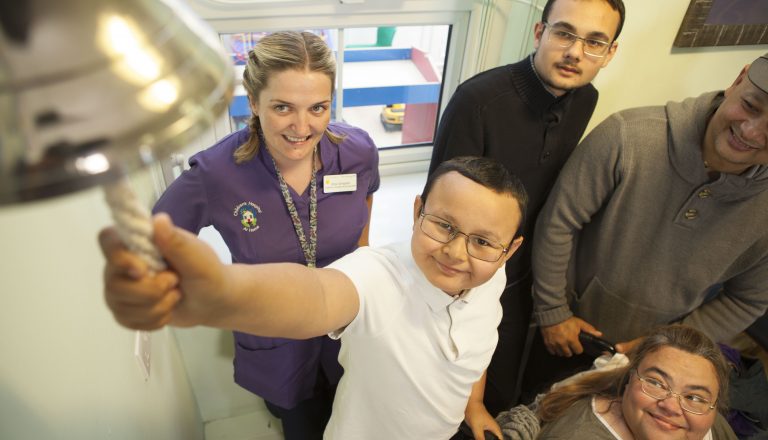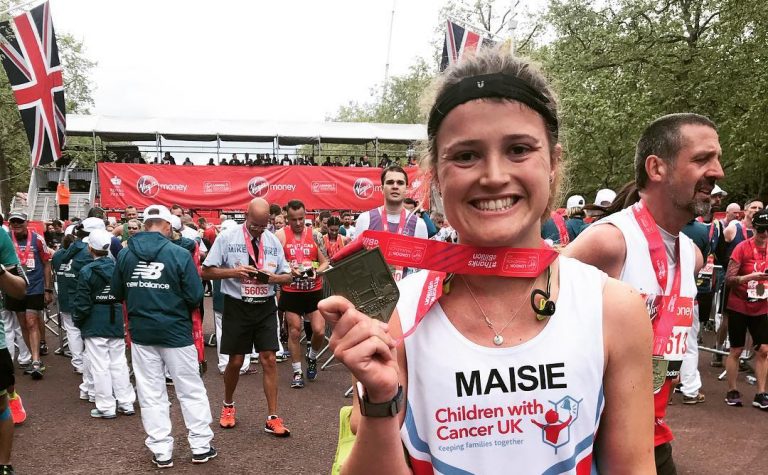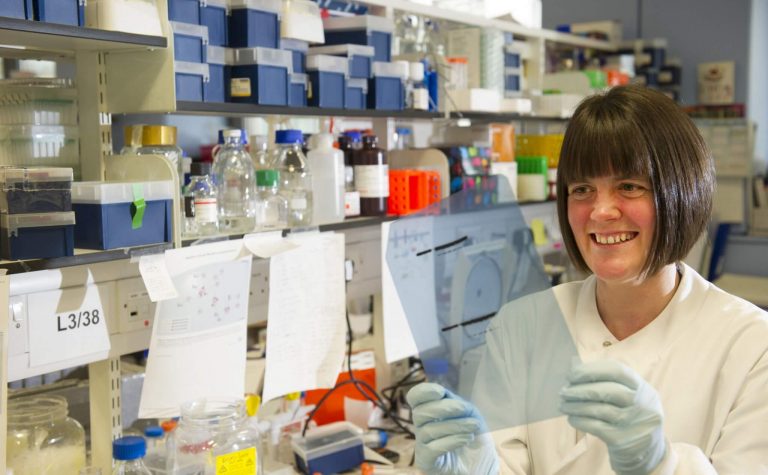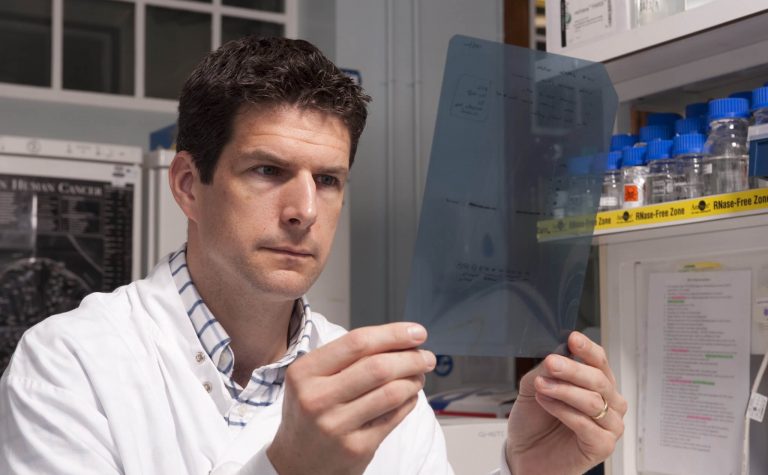The latest research of parents and siblings of childhood cancer sufferers was conducted to uncover the extensive short and long-term impact that cancer treatment can have on young patients and their families. This research launched to coincide with Childhood Cancer Awareness Month this September.
- Latest research from Children with Cancer UK reveals the widespread impact on mental health that childhood cancer treatments can have
- Almost half (45%) of families say that their child’s mental health has been impacted by their cancer treatment in the short-term, and over a third (34%) say it has been impacted in the long-term
- Almost three quarters (74%) of families agree that their family unit has been impacted by emotional and mental health issues during their child or sibling’s cancer journey
- A third of families (33%) say that the impact of childhood cancer has led to relationship breakdowns within the family unit
Impact on mental health in the short and long-term While the majority of families cited that their child or sibling experienced more well-known short-term side effects including weight loss or gain (73%), hair loss (70%), nausea/vomiting (67%) and fatigue (64%), almost half agreed that treatment had impacted mental health (45%). Emotional and mental health issues were also revealed to be the most common long-term side effect for childhood cancer patients (34%), including anxiety, post-traumatic stress disorder and depression. This is followed by behavioural issues (26%), lessened immunity (26%), and decreased fertility or infertility (25%). Commenting on the findings, CEO of Children with Cancer UK, Mark Brider said:
Our research highlights the wide-ranging and devastating effects that cancer treatments can have on childhood cancer patients and their families. While the physical side effects of cancer are often all too visible, many patients and their families are living with long term mental health conditions as a result of treatment. This Childhood Cancer Awareness Month we want to make people aware of the realities of growing up and living as a childhood cancer survivor. Sadly, the struggle does not just end when treatment finishes. The harsh realities of long-term implications are why our mission as a charity is threefold – Cause, Care, Cure. Not only do we want to find the causes of childhood cancer, but we want to find kinder, less toxic treatments which result in fewer side effects. Childhood cancers are very different to those found in adults but just 3% of cancer research funding is spent on childhood cancer.
Impact of mental health on the family unit However, it’s not just the mental health of young patients which is suffering. The vast majority of respondents (74%) stated that their family unit had experienced emotional and mental health issues during the cancer treatment journey too. Almost half of parents (48%) say that their child’s cancer diagnosis has caused them financial stress, with 43% stating that their child’s cancer had led to job loss, or the need to significantly reduce hours. Around a third of families (33%) stated the impact of childhood cancer had led to relationship breakdowns within the family unit. One in five (22%) stated that they felt they had received little or no information about the long-term side effects that their child may suffer. Mark Brider added:
The COVID-19 pandemic has had a significant impact on our fundraising and consequently the amount of research projects that we will be able to support over the coming months and years. The cancellation of major fundraising events will cause a 40% drop in our annual income. As a result, we are calling on the Government to commit to providing a level of matched funding to preserve charity-funded research and to ensure that the contributions of charities to the UK’s research base are retained. Measures like this are needed to enable us to continue making progress in finding treatments with fewer side effects.
Case study Dylan Clements, 12, from Croydon, was diagnosed with
acute lymphoblastic leukaemia (ALL) in January 2015 when he was eight years old. Dylan’s treatment, over three years, consisted of chemotherapy, lumbar punctures and steroids. During treatment he suffered from mood swings, hair loss and mouth sores. Dylan finished treatment in March 2018. His mother Lorraine Clements, 45, discusses the long-term impact the gruelling treatment has had on her son:
I thought after Dylan finished treatment that our lives would return to normal but sadly that was not the case. After coming off treatment, I noticed that Dylan didn’t seem happy. He was having really bad mood swings – one minute he’d be fine and then the next he would be angry, shouting, name calling, hitting out, all over trivial things. This behaviour got worse and more frequent and we were walking on eggshells just to keep him calm. He became scared to do everyday activities, such as go to the bathroom or bed by himself. I had to get a baby monitor for his bedroom and he would repeatedly ask me questions to make sure I was watching him. I knew from his behaviour that Dylan was suffering from anxiety and depression. He had become a completely different child – he used to be really lovable, excited and happy and now he’s constantly down, unhappy, anxious and very angry. As well as affecting Dylan, the mental health of the wider family also suffered – his older brother had a panic attack during the early stages of Dylan’s cancer journey. We spoke to Dylan’s consultants and he was referred to a clinical psychologist. This helped for a while, but then lockdown hit and his sessions were paused. He’s really suffered during the pandemic – it’s intensified all his existing issues and anxieties. A lot of people, including me initially, believe that life goes back to normal after treatment but this is so far from the truth for many children and families affected by childhood cancer. The difficulties haven’t ended for our family and we don’t know if and when they will. As well as mental health issues, Dylan also suffers from other side effects such as pain in his legs, which means he can’t walk far and he has previously seen a physiotherapist for this. He has ongoing issues with food and weight due to his steroid treatment. It’s vitally important more research is directed towards reducing long-term side effects for children so that they can live a better quality of life after treatment. With all the physical and psychological pain Dylan is in now, there is no way he can return to any sense of normality. My hope is that on top of his cancer staying at bay, he can eventually learn to deal with his mental health issues and lead a happier life.
Editors’ Notes Children with Cancer UK’s press office E: media@childrenwithcancer.org.uk
T: 0207 404 0808
M: 07 795 956 342
About Children with Cancer UK Children with Cancer UK is the leading national charity dedicated to research into childhood cancer. We fund research into the causes and treatment of childhood cancers and provide support for families affected by childhood cancer. We have accelerated breakthroughs to improve childhood cancer survival rates and find kinder, more effective treatments with fewer toxic side effects. This ground-breaking research, which would otherwise go unfunded, saves the lives of children with cancer.
About childhood cancer and Children with Cancer UK’s impact Every day in the UK, 12 children and young people are diagnosed with cancer. Fifty years ago, only 30% of children with leukaemia survived, and for most other forms of childhood cancer survival rates were even lower. Today, thanks to our supporters and the dedication of visionary researchers like those we fund, more than 80% of young patients can be successfully treated. More vital research is needed though as there are still a number of cancers affecting children and young people with low survival rates and life-limiting side effects. Cancer remains the single largest cause of death from disease in children and young people in the UK.



